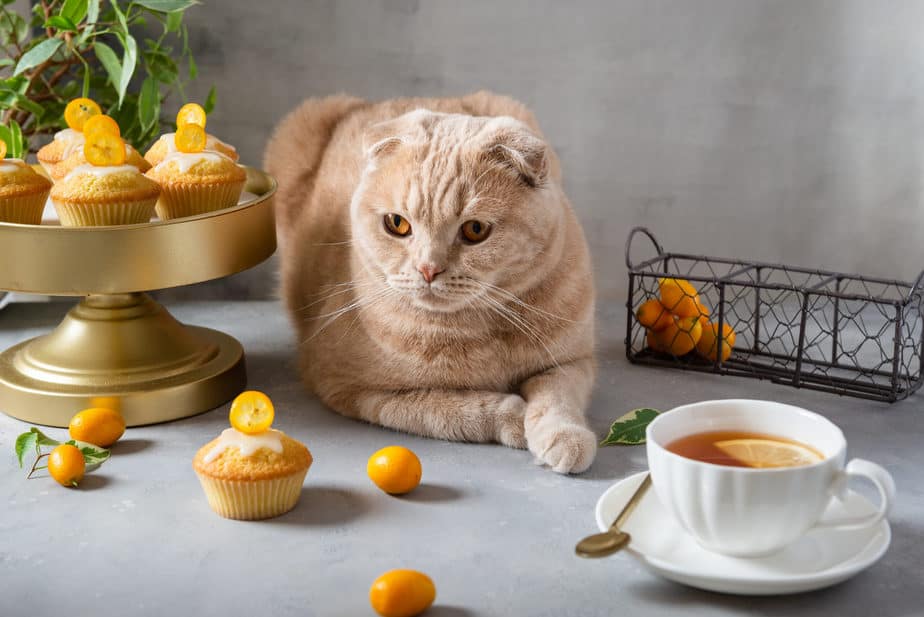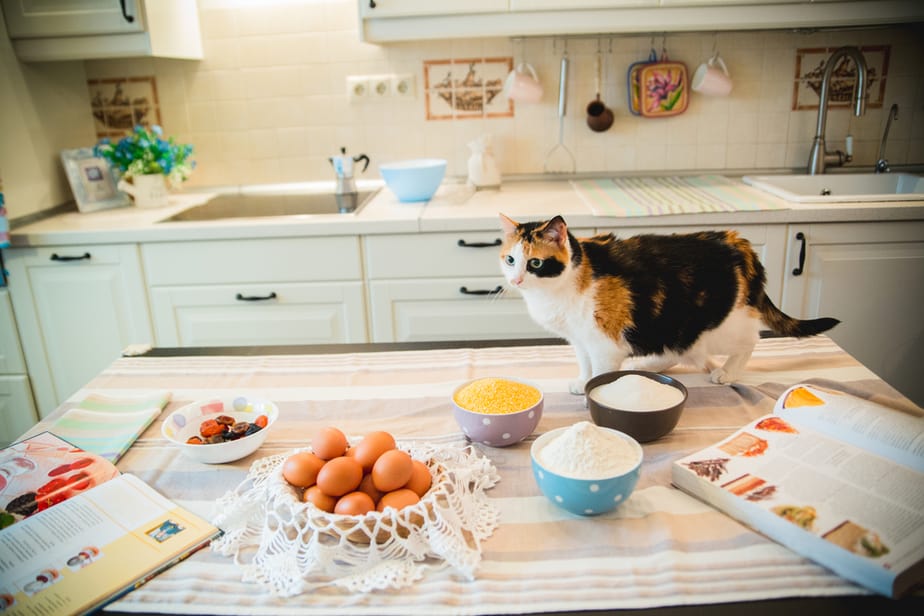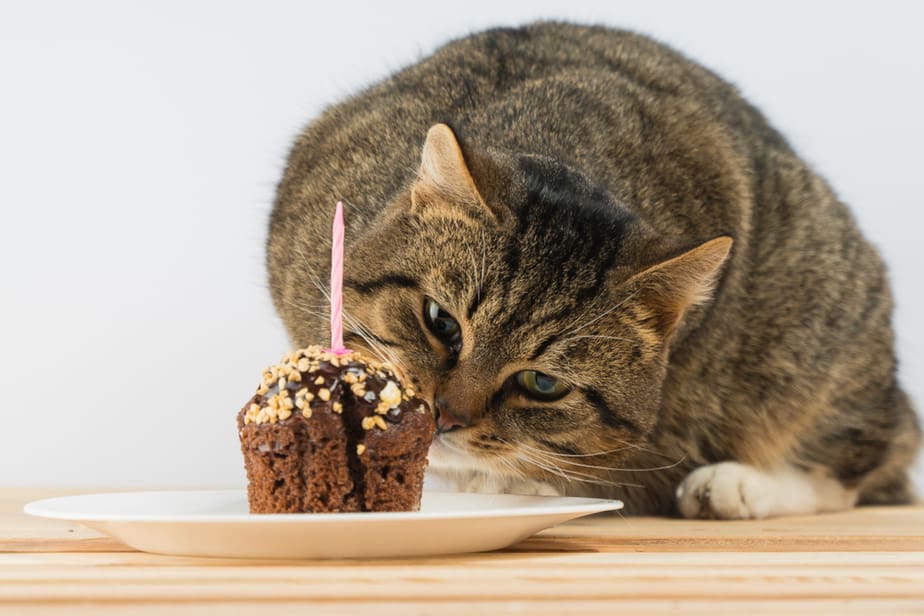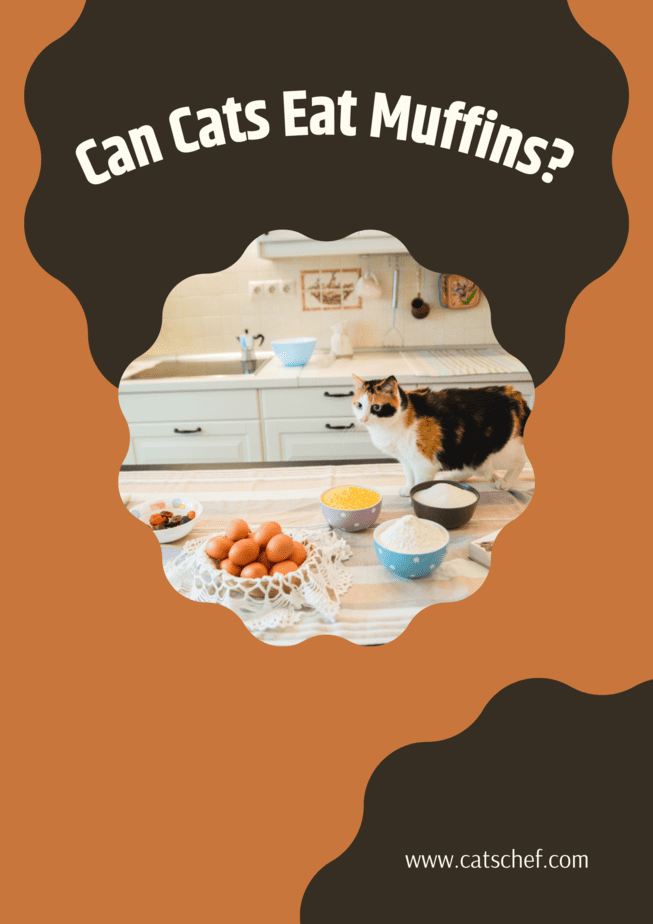📖 Table of Content:
Muffins are a quick, fluffy, and delicious treat found all around the world. Everyone knows about muffins, including our cats. They shoot daggers at us every time we take a bite out of one. So you have to wonder – can cats eat muffins?
We all like to pamper our little fluffs from time to time. But, when are we crossing the line?
Our pets often don’t have the best judgment when it comes to food, and it’s up to us to take care of the situation. Their health should be our priority, and sometimes, that means denying them certain foods.
Are muffins bad for cats?
Generally speaking, all treats are bad for your feline. As they’re carnivores, they require meat as the main part of their diet. Other than that, almost no food can replace the nutritional value meat offers to your furkid.
Especially sweets like muffins that have little to no nutrients that cats need. Your furry companion isn’t attracted to sweets as much as you would think she is. Here’s an interesting fact about cats: they don’t have a sweet tooth.
This means they are not attracted to the sweet, sugary scent. It’s rather the fat in different sweet snacks that entices your pet. However, muffins aren’t the best choice of food for your fluff, as much as you wish it wasn’t true.
What are muffins made of?
Main ingredients found in these treats are flour, eggs, and sugar. Other than that, muffins come in a variety of flavors such as vanilla, chocolate, blueberry, and many more.
These generally aren’t the safest ingredients for your pet so make sure you don’t encourage her to eat them. It’s fine if she steals a bite or two off your plate, but other than that, keep an eye out for your stealthy buddy when eating dessert.
Flour, eggs, and sugar
Raw flour isn’t particularly good for your pet. Although it is not toxic, your cat should avoid eating it because it has no nutritional value. It will not benefit her in any way.
Flour dough, on the other hand, is a different tale that should also be avoided. Muffin dough, for example, contains yeast, causing it to rise. If swallowed, it can cause your cat to get bloated, which can be fatal in some situations. Many cats have had to have surgery in order to remove raw dough from their intestines.
Eggs are a great way to get a lot of protein. Cats need protein to function on a regular basis, and if they don’t get enough, they might become underweight and have health problems. Animal-derived protein is required for optimal growth and acts as an energy source for felines.
Eggs can be a tasty treat from time to time, and occasionally including them in your cat’s normal diet will tremendously benefit her. Make sure your cat doesn’t eat any of the uncooked eggs you’ve whisked. Certain infections, such as E. coli and salmonella, may be carried by them. Boiling eggs in their shells is a safe bet.
Humans have strong sweet cravings and seek sugar as a rapid energy source, whereas cats don’t. You might think she likes the sweet flavor of muffins, but this is not the case.
Sweetness isn’t detectable by your pet. They lack the taste buds necessary to perceive and enjoy the flavor of sugar. This is a good thing because sugar can damage teeth and cause diabetes if consumed in excess.
Can cats eat muffins because of chocolate and blueberry?
Chocolate, also found in chocolate pudding, is extremely dangerous to cats, and in the worst-case scenario, it can even kill them. Caffeine and theobromine are the reason for its toxicity.
These compounds are barely digested by felines and can build up in your cat’s digestive tract. As a result, several medical problems are likely to emerge.
Vomiting, diarrhea, and fatigue are all symptoms of chocolate toxicity. Tremors and seizures can occur as more severe symptoms. Take an emergency trip to the vet if your cat gets a hold of chocolate, whether it’s milk or dark. It doesn’t matter if she ate chocolate cake or plain chocolate, the outcome is going to be the same.
When it comes to blueberries, they don’t pose a threat to your furkid’s health. These, just like cranberries, have some positive effects on felines. Blueberries are a great source of antioxidants that help fight radicals in the body.
Apart from that, they can aid in urinary-tract health and are a great supply of fiber. Your furry pet needs fiber on a daily basis as it helps regulate her digestion and prevent constipation. Blueberries also have anti-inflammatory properties that are beneficial for cats with arthritis.
To sum up
High levels of sugar and other ingredients like chocolate are what keeps your cat from the delightful taste of muffins. Cats can eat muffins occasionally, in very small amounts, and only if they don’t contain these harmful ingredients.
However, we don’t encourage you to feed muffins to your pet because it isn’t her natural diet. Provide your fluffball with some meat-based food that will help her grow!
See more: Can Cats Eat Marshmallows? A Sweet Treat Or A Call To Retreat?



